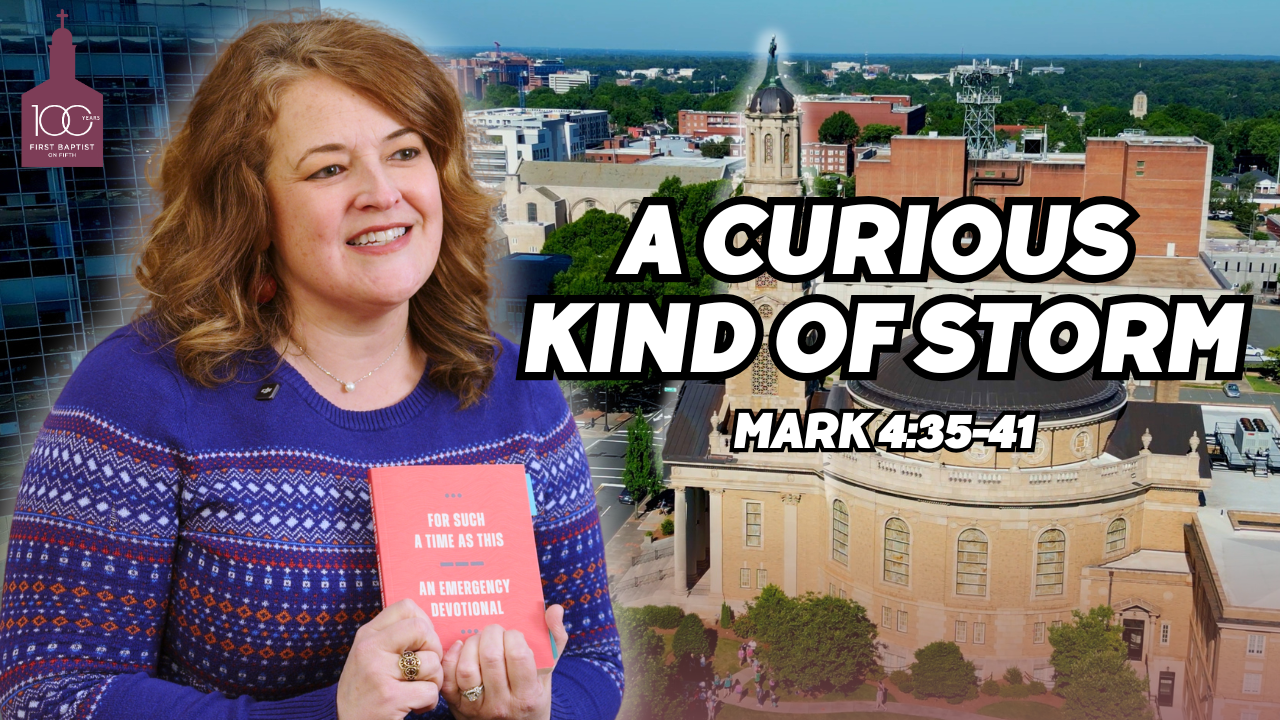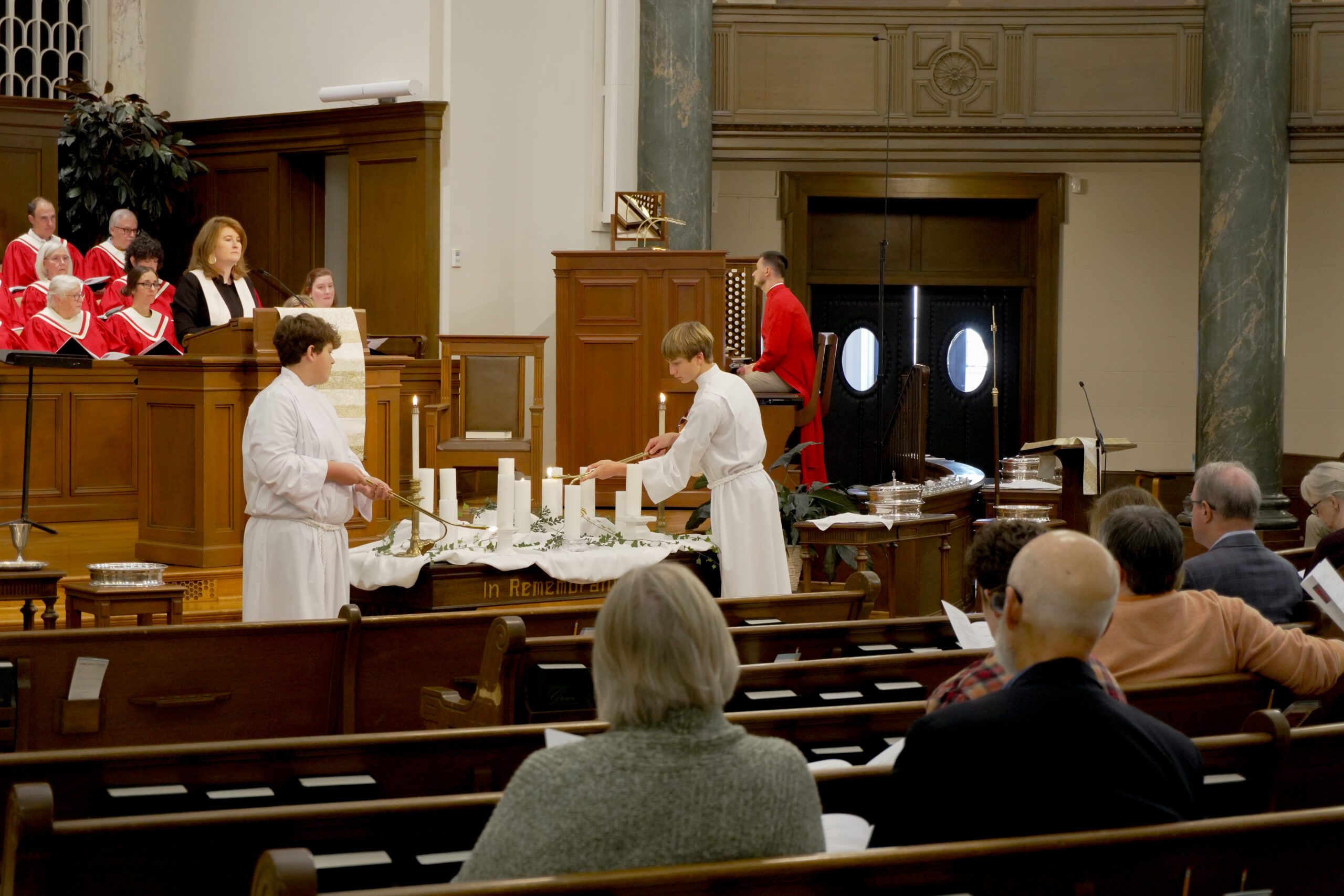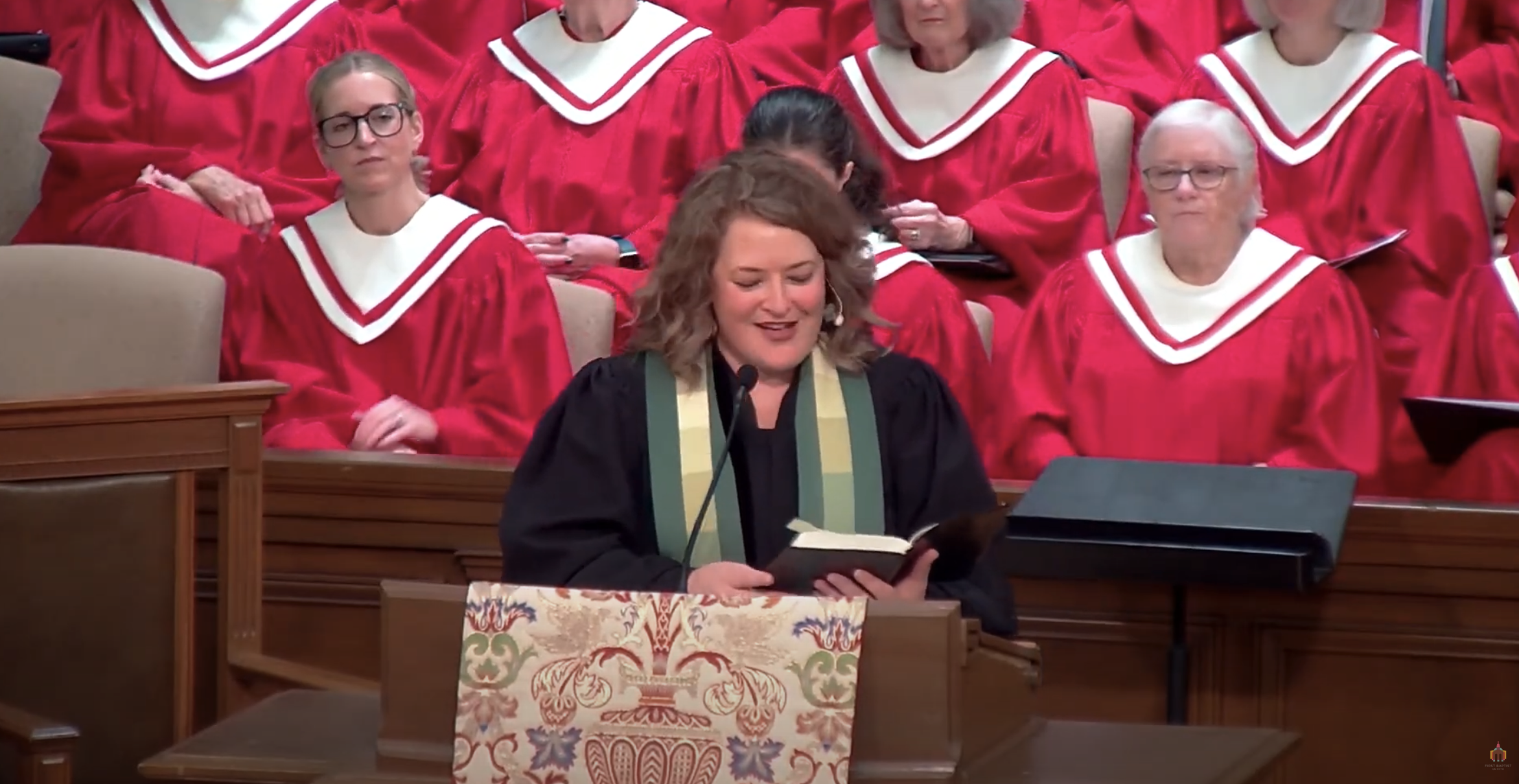IThese fall weeks, we’ve journeyed with Jesus through the Gospel of Matthew – first in an agrarian stretch of parables through Matthew chapter 13, learning of seeds and soils, of weeds and wheat, of the tiny mustard seed, the hidden yeast, the treasure tucked in a field, the pearl of greatest price. Last week we heard the parable of the laborers in the vineyard, and that question of Jesus that still sears in my mind and heart a week later: “are you envious because I’m generous?”
This next stretch of parables in Matthew that will carry us all the way to Advent are ones from the latter chapters of this gospel narrative, and taking a moment today to situate them in the larger context of Jesus’ movements will be critical for our understanding. Matthew 21 begins with our understanding of Holy Week. Just a few days prior, Jesus made his triumphal entry into Jerusalem atop a pair of donkeys as the crowds shouted hosanna, and the city churned with anticipatory energy wondering of him, “who is this?” He then causes what John Lewis would call “good trouble” in the temple, driving out with righteous anger the whole lot of money-makers who were essentially selling access to God to the poorest and most vulnerable. He healed and cured, he cursed a fig tree and taught in enigma and mystery, and when his authority was questioned by those most threatened by it – that is, the religious establishment – he refused to answer, deflecting by asking their opinions about John the Baptist who he knew they dismissed.
That’s when he decides to tell a story of a man who had two sons. The man went up to the first and said, ‘Son, go out for the day and work in the vineyard.’ But the son answered, ‘I don’t want to.’ Later on [the son] thought better of it and went.“The father gave the same command to the second son. He answered, ‘Sure, glad to.’ But he never went. So which of the two sons, Jesus asks, did what the father asked?” They said, “The first.”1
To the religious authorities who questioned his authority, Jesus concludes: “truly I tell you,” he says, “the tax collectors and the prostitutes” – the people you’d never find worthy – “will come into the kingdom of God ahead of you, just as John said but you didn’t believe.”
II As I’m sure you’ve seen, sometimes these short parables of Jesus can be the most enigmatic and confounding. And particularly as I study the briefer of the parables, I find myself asking what they say – but also, what they don’t say. Jesus’ suggestion seems clear: our words are truest when accompanied by our actions, a lesson acutely pointed to those like me who carry some religiously-appointed authority or like any of us who hold the name “Christian.”
Yet let’s note what doesn’t happen in the parable. The father doesn’t ask his sons to figure out annual projections for all that the vineyard will produce. He doesn’t ask them to grow their family’s business or to acquire another vineyard a few miles down the way. He doesn’t ask them to solve every problem the vineyard is causing them, or deal with every pest they find, or figure out why the grapes in that one corner just won’t grow! He doesn’t ask them to go work the fields in Greece instead or develop a new kind of wine! Rather, he simply asks his children to go and labor in the vineyard. He asks for their attention to the work, just enough for today. Not to solve or embellish.
Not to fix or secure. Not to ignore or avoid. To show up. To be faithful. To do the small and steady work of tending that garden. To uphold their responsibility for this patch of land among all the land in the world. To match their body’s actions with their heart’s convictions.
III More than six weeks ago, our church’s Finance Committee got to talking. (They’re good at that task!) You see, it has been their annual practice for decades to approach the second half of a calendar year working on a thoughtful, sound picture of what the next year of our income and expenses might look like. The Finance Committee’s work is aided by all the seven committees and thirteen ministry teams of the church who prayerfully, carefully, hopefully submit requests each August to the Finance Committee for the funds they anticipate they’ll need the coming year to do the ministry God is setting before them. Those requests come in, and the Finance Committee has held those numbers alongside the past year’s income, one of their sturdiest metrics to anticipate how we all give a bit of our money toward the shared work of the church. In some ways, in order to look forward, we have to look back, they’ve said.
Yet as their work on the 2024 Ministry Funding Plan (or the annual budget) began this year, the Finance Committee felt a new need emerge. “First Baptist on Fifth is in such a significant season of growth and vitality,” they said, “that it would be wise and helpful to gather more information. No longer can we simply look back to look forward. This is the year,” surmised Jim, Carol, David, Matt, Joani, Leslie, Gary, and Scott, “that we must return to the practice of asking the church – you and me, individuals and families, members and friends, worshipers in this room and worshipers online, all together, even if it feels awkward or intimate or unfamiliar – to make the very best estimate we can about the dollars and cents we hope to give to God through First on Fifth, and then commit to each other – but mostly, to God and to ourselves – what those dollars and cents will be.”
That recommendation begat a host of meetings – because we’re good Baptists, you know! With Deacons, with committee chairs and ministry team co-chairs, with staff, back to Finance a time or two, and all along the way, this language of tending has guided the plans. “For when we ‘attend church,’” I’ve heard these wonderful leaders say, “we give our church – and the shared ministries we feel God calling us toward – our attention. With attention comes the resources behind it: our time, our energies, our particular callings or places of experience or expertise. And yes, our money too. When we attend church, it’s like we plant a seed.”
IVFriends, in the nearly eight and a half years I have served as your pastor, I have never felt more hopeful about the unfolding future of First Baptist on Fifth, and it’s because of you! In the life of our church and in the life of the world, we are in a historic moment, a pivotal season for what our future will hold.
Now do not hear this as unfettered pride or unchecked perfection. Not a chance. We screw up around here often, and will continue to, I’m sure, because we’re human, and churches are full of humans, even – and especially – this one. We have growing edges in how we harness all the vibrant commitments so many of you have individually for doing good in this world to find a shared, significant impact together. We could stand to streamline how we make decisions, to simplify processes and systems that are unnecessarily complex, and yes, to pare down how many meetings we have! And the list could go on, and does.
Yet, we have the opportunity – and dare I say the urgent, hope-filled calling by God – to be that “community in the heart of the city called by Jesus to practice bold love of God and neighbor and boundless compassion for all people.”
When trust in institutions is at a historic low, together with God we have the opportunity to summon the very best of ourselves toward being as authentic and real as we can, as wise in our judgment and robust in our competence as we can, as genuinely empathetic and compassionate as we can.2
When stories of churches rife with sexism, heterosexism, ableism, Christian nationalism, and every other -ism possible are everywhere we turn, together with God we have the opportunity to be a place and a people of health:
speaking with each other through conflict, leaning in instead of pulling away when things are hard, rooting out behaviors that run counter to the Spirit of God, learning what we don’t know and then doing better when we know better.3
When loneliness and isolationism infect the body politic and cloud the common good, when division and polarization seem to exile us from each other and keep us from extending to one another the very dignity of being human in this world, together with God we have the opportunity to be a church where all are, as we stated in our Confession of Identity, “welcomed, affirmed, and celebrated in the fullness of who they are: beloved for their differing ages and races, sexual orientations and gender identities, means and sufferings, physical and mental abilities, levels of education and backgrounds, cultures and nationalities, doubts and beliefs.”4 Where your anxious children or queer grandchildren, your wounded coworkers and fearful neighbors, your agnostic-yet-curious spouse or your lapsed Catholic sibling would find a true and beautiful and brave and loving community where they can call home. Why?“Because God’s love knows no boundaries, therefore our love shouldn’t either.”5
When individualism is at a historic high, together with God we have the opportunity to practice beloved community in all its countercultural glory, where “we are members of one another,” as Paul said; “perceiv[ing] a harmony that transcends all diversities and in which diversity finds its richness and significance,” as Howard Thurman said; the beloved community where, in the vision of Dr. King, “this type of understanding goodwill that will transform the deep gloom of the old age into the exuberant gladness of the new age.”6
When bombs rain down across the globe and lives are mercilessly taken, when the planet warms and authoritarians rise, when relationships end and a new diagnosis begins, despair can feel inevitable. Despondency within easy reach. Doubt and anger and fear and listlessness, constant companions. When asked to work in the vineyard, sometimes our ‘yes’ can’t make its way from our mouth to our feet, not even for a day. The energy just isn’t there, not for lack of desire but rather lack of hope.
VThat’s what one of you told me this week over lunch. “I just can’t shake this sense that God should be doing more,” you said. “I’m doing my part, and where is God in this mess? Why are things so hard? Why is the world so screwed up?If God is so powerful, then why can’t he just… fix it? Fix… me?”
Words from my mentor and theology teacher, Frank Tupper, began to spill from my lips. “God’s not up there,” I said, “acting like a puppetmaster. Because when God gave humankind the freedom to choose, to make our own decisions and act on our own free will, God limited God’s self. God chose the route of constraint, of limit, where the divine power is made perfect in weakness that we see in Jesus. Instead of sitting up there and causing beautiful and terrible things to happen, rather God is down here: being with us, suffering with us, rejoicing with us, grieving with us, holding us up when it feels we cannot go a step further. When tragedy strikes, God’s heart is the first to break, God’s tears the first to fall. And when joy comes in the morning, God’s heart is the first to leap.”
“But I can’t feel that,” you said to me. “I can’t feel God’s presence, only my anger hot and devouring like a fire, my unease paralyzing.” Yes. Yes. I know those seasons. I know you know those seasons. And I told them, what brought me back to life, to God, to myself, to my loved ones happened in the small practices and the steady rhythms: that which reminded me that I’m a human being not a “human doing,” the encouragements that may have felt modest to the giver but were extravagant to me, the hearer, that which tethered me again and again to the gift of this life – even when I felt far from it. “The best antidote for despair,” Joan Baez reminds us, “is action.”7 Seeds, you might say.
Though the distance between the Finance Committee deliberations, budget spreadsheets, and sample pledge cards I had just left on my desk may seem far from the war unfolding on the other side of the world and the theological impasse of the beloved church member and friend in front of me, that distance isn’t actually far at all. Because where better than the church to turn despair into hope, to turn imagination into action, to turn handfuls of seeds into a thriving garden?
Every dollar spent on a notecard and energy spent to write it, thoughtfully and intentionally, to a senior adult whose days are too often lonely? A seed! Every dollar spent on the curriculum, the materials, the Bibles, the volunteer training, and the staff to teach sound, loving theology to our children and youth? A seed! Every dollar spent with denominational and missions partners, lifting our eyes to the neighborhoods around us and giving our hands and feet space to act? A seed! Every dollar spent on our church house (ok, a lot of dollars spent!), a witness right in the heart of downtown to a legacy of love and faithfulness? A seed! Every dollar spent to create worship that lifts us in mind, body, and heart, to create fellowship opportunities for feasting across difference, to create posts on Facebook, Instagram, TikTok that reach thousands with good news of great joy, to create the space for relationships to flourish, relationships that change us from the inside out? Seeds, allseeds! Actions that insist on more hope than despair, more peace than war, more joy than apathy, more love than hate, more light than darkness.
VI A mentor of mine once said that of all the gifts the church offers to her people, one of the best is the opportunity to do things that are “small enough to do, but big enough to matter.”8 Small enough to do, but big enough to matter. Today, at the conclusion of worship, each family will leave with a commitment card and an invitation to consider how you might “attend to our church,” how you’ll offer what you have to join what God is already doing among us, how you’ll plant a seed. No two commitments will be the same. What may be a commitment of $5 a week to one of you may match what is a commitment of $50,000 a year to another of you. Each of us has our own work to do, and only you know what that commitment should be.
Yet when we bring our seeds, when we find that which is small enough to do but big enough to matter, when we bring the pieces of our broken hearts and bold imagination and fashion a mosaic that looks like beloved community, we’re “attending church.” We’re exercising joyful responsibility – not out of guilt or duty, but instead out of hope and delight. We’re committing to each other and the shared work God has given us to do.
Indeed, God does not ask us to figure out all the problems of all the vineyards in the world, to solve every crisis, fix everything that’s broken, heal every aching heart. Rather, God simply asks us to go and labor in our vineyard, to give our attention to the work, just enough for today. Not to solve or embellish. Not to fix or secure. Not to ignore or avoid. To show up. To be faithful. To do the small and steady work of tending this garden. To uphold our responsibility for this patch of land and relationships and commitments and dreams and ministries and missions among all the patches in this world. To match our body’s actions with our heart’s convictions.
VIIThe beloved author EB White once wrote an essay about his wife who had died a few years earlier. She loved to garden: every year she planned it carefully, ordering from seed catalogs, creating a new diagram for each year’s planting. After she became ill and very nearly homebound, she continued and managed somehow to get herself outside when it was time to plant. Of this, White wrote:
“Armed with a diagram and clipboard, Catherine would get into a shabby old raincoat, much too long for her, and put on a little round wool hat and proceed to the director’s chair placed at the edge of the plot. There she would sit, hour after hour, with the wind and the weather… ready for the intricate interment. There was something comical, yet touching in her bedraggled appearance on this awesome occasion. The small, hunched-over figure: her studied absorption in the implausible notion that there would be another spring: oblivious to the ending of her own days, which she knew perfectly well was near at hand; sitting there with her chart under those dark skies in the dying October calmly plotting the resurrection.”9
May we take our seeds. May we tend this land. And in so doing, may we plot the resurrection! Amen!





